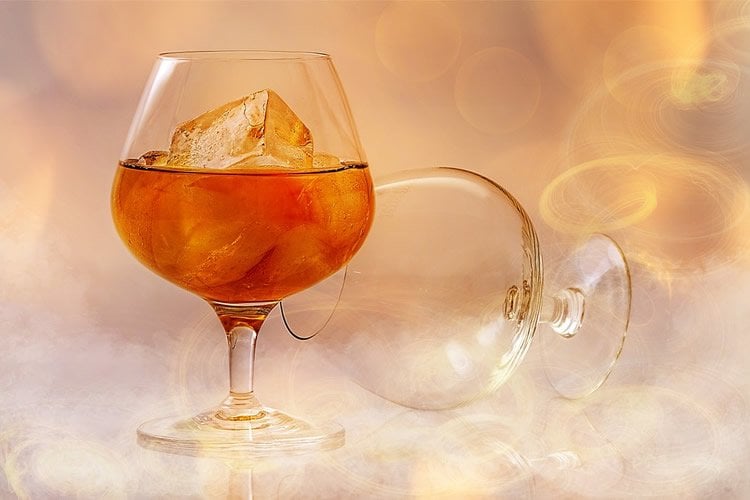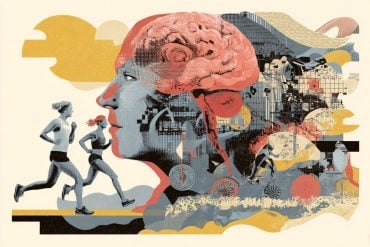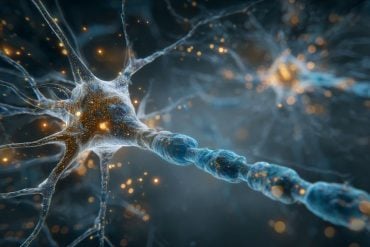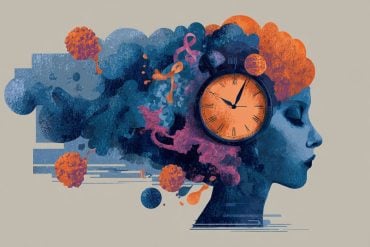Summary: A Frontiers in Psychiatry paper reports when male voles drink and their partner abstains, their relationship starts to suffer. The findings could help explain the link between discordant drinking and relationship breakdown in humans.
Source: Frontiers.
A study of the effect of alcohol on long-term relationships finds that when a male prairie vole has access to alcohol, but his female partner doesn’t, the relationship suffers – similar to what has been observed in human couples. The study, published today in open-access journal Frontiers in Psychiatry, also identifies changes in a specific brain region in the male voles. The findings could help researchers find strategies to overcome the negative effects of alcohol on human relationships.
“We know that in humans, heavy drinking is associated with increased separation rates in couples in which one of the partners is a heavy drinker and the other is not, while separation rates don’t seem to increase when both partners drink in a similar manner, or don’t drink at all,” says Andrey Ryabinin, of Oregon Health & Science University and one of the study’s authors.
Researchers don’t know whether problematic drinking directly contributes to relationships breaking down, or if the unhappiness people experience in a failing relationship drives them to drink. Understanding whether alcohol’s effects on the brain directly contribute to relationship breakdown could help researchers to understand and treat problematic human behaviour.
The prairie vole, a small monogamous rodent found in North America, provides a model to study this complex phenomenon. “Not many rodents form long-term social attachments and not many rodents like to drink alcohol,” says Ryabnin. “However, prairie voles are unusual as they are socially monogamous and like drinking alcohol, so they are perfect to investigate the role of alcohol in relationships.”
Andre Walcott, a graduate student in Ryabinin’s laboratory, allowed male and female prairie voles to form social bonds over one week. The researchers then gave the males access to a 10% alcohol solution, while their female partners were allowed only water (discordant drinking) or also had access to alcohol (concordant drinking). In a control group, both males and females had access to water only.

The researchers then gave each male a choice between huddling up beside his female partner or a new female. By timing how long the male spent beside each female, the researchers could determine the bond strength between the male and the original female.
The researchers found that the prairie vole couples behaved like human couples in terms of how alcohol affected their relationships. During the social connection test, males who had drunk alone spent less time with their original female partner, whereas those who had never drunk or those who had drunk alongside their partner huddled with them for longer.
These results indicate that discordant drinking can directly affect prairie voles’ relationships. The researchers next investigated whether there were any changes in the brains of the male prairie voles. Sure enough, males who had drunk alone showed changes in a brain region called the periaqueductal grey that might be responsible for these effects.
What does this mean for human couples? “Our results in prairie voles have identified a biological mechanism that could explain the link between discordant drinking and relationship breakdown, but we will need to do further work to confirm this for humans,” says Ryabinin. “In future studies, we might be able to find strategies to overcome the negative effects of alcohol, to improve relationships that are disrupted by problematic drinking.”
Funding: Study funded by National Institutes of Health.
Source: Emma Duncan – Frontiers
Publisher: Organized by NeuroscienceNews.com.
Image Source: NeuroscienceNews.com image is in the public domain.
Original Research: Full open access research for “Alcohol’s Effects on Pair-Bond Maintenance in Male Prairie Voles” by Andre T. Walcott and Andrey E. Ryabinin in Frontiers in Psychiatry. Published online November 17 2017 doi:10.3389/fpsyt.2017.00226
[cbtabs][cbtab title=”MLA”]Frontiers “When Male Voles Drink Alcohol But Their Partner Doesn’t, the Relationship Suffers.” NeuroscienceNews. NeuroscienceNews, 17 November 2017.
<https://neurosciencenews.com/alcohol-relationships-7972/>.[/cbtab][cbtab title=”APA”]Frontiers (2017, November 17). When Male Voles Drink Alcohol But Their Partner Doesn’t, the Relationship Suffers. NeuroscienceNews. Retrieved November 17, 2017 from https://neurosciencenews.com/alcohol-relationships-7972/[/cbtab][cbtab title=”Chicago”]Frontiers “When Male Voles Drink Alcohol But Their Partner Doesn’t, the Relationship Suffers.” https://neurosciencenews.com/alcohol-relationships-7972/ (accessed November 17, 2017).[/cbtab][/cbtabs]
Abstract
Alcohol’s Effects on Pair-Bond Maintenance in Male Prairie Voles
Alcohol abuse can have devastating effects on social relationships. In particular, discrepant patterns of heavy alcohol consumption are associated with increased rates of separation and divorce. Previous studies have attempted to model these effects of alcohol using socially monogamous prairie voles. These studies showed that alcohol consumption can inhibit the formation of pair bonds in this species. While these findings indicated that alcohol’s effects on social attachments can involve biological mechanisms, the formation of pair bonds does not properly model long-term human attachments. To overcome this caveat, this study explored whether discordant or concordant alcohol consumption between individuals within established pairs affects maintenance of pair bonds in male prairie voles. Male and female prairie voles were allowed to form a pair bond for 1 week. Following this 1-week cohabitation period, males received access to 10% continuous ethanol; meanwhile, their female partners had access to either alcohol and water or just water. When there was a discrepancy in alcohol consumption, male prairie voles showed a decrease in partner preference (PP). Conversely, when concordant drinking occurred, males showed no inhibition in PP. Further analysis revealed a decrease in oxytocin immunoreactivity in the paraventricular nucleus of alcohol-exposed males that was independent of the drinking status of their female partners. On the other hand, only discordant alcohol consumption resulted in an increase of FosB immunoreactivity in the periaqueductal gray of male voles, a finding suggesting a potential involvement of this brain region in the effects of alcohol on maintenance of pair bonds. Our studies provide the first evidence that alcohol has effects on established pair bonds and that partner drinking status plays a large role in these effects.
“Alcohol’s Effects on Pair-Bond Maintenance in Male Prairie Voles” by Andre T. Walcott and Andrey E. Ryabinin in Frontiers in Psychiatry. Published online November 17 2017 doi:10.3389/fpsyt.2017.00226






